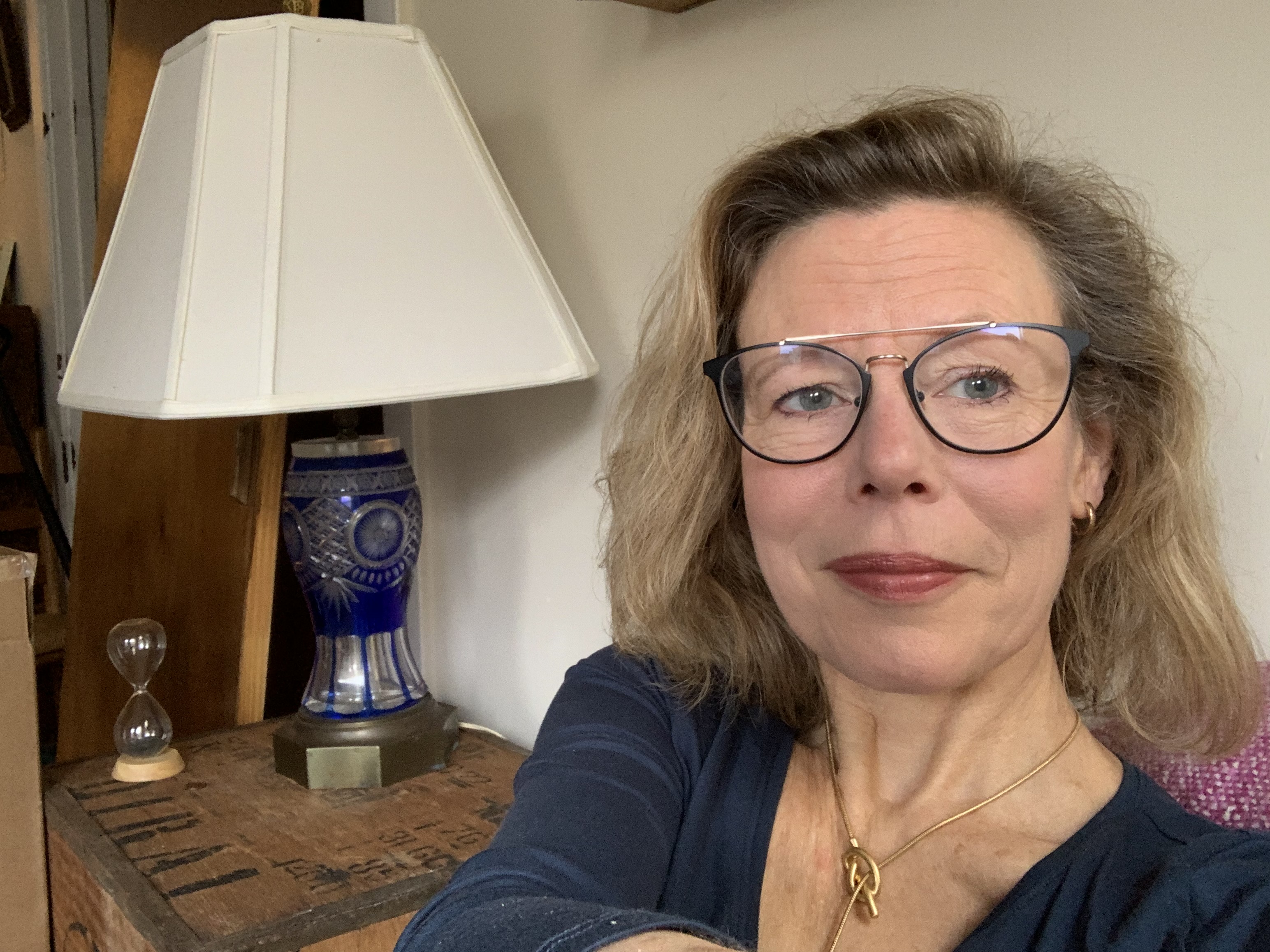Tamara Faulkner
Therapist, the Family Institute at Northwestern University
I stopped seeing people in person a little bit earlier than most therapists. I did not want to run the risk of being the Typhoid Mary of COVID-19. Now everyone is practicing through teletherapy. Before this I had been using it probably 5 percent of the time, when clients were on vacation. It is quite different to focus on a person’s body language when all you can see is from the sternum up.
My clients really want to talk to me these days. There’s definitely a “Smoke ’em if you got ’em” thing: “Okay, I’ve got a therapist, and this is something I’m going to need therapy for.” But a number of them have had to work hard to find privacy. There’s a lot of going to garages, finding space in the basement, sitting in cars, moving cars to the other side of the driveway so they’re closer to wifi. It’s very moving to see that my clients are that committed.
Boundaries are an important part of therapy. But here we are doing teletherapy from home, and my cat jumps on my lap. Now the client knows I have a cat. “Oh, you have a cat! I want to talk to your cat!” For some of us, that’s perfectly fine. For other therapists, it’s really difficult to redraw the line.
One surprise is that people have shown so much more resilience and innate positive coping than I would have imagined. It’s not that I was lowballing my clients. It’s just that powerlessness is one of the biggest triggers for a number of mental health concerns, and if there were ever a time when it would seem legitimate to engage in catastrophic thinking, it would be now. But it’s kind of liberating to be able to be with those fears together.
It’s not a time to make really big decisions, which everybody wants to do: “Should I stay in this marriage? What kind of a job do I want?” This is such a profoundly unscripted space that it’s more compassionate to drop that as an expectation and just go: “What do I need right now to be safe?”
One of the things we’re seeing in clients is a distrust of leadership. When somebody sounds the all-clear, I don’t know that we’re all going to believe it. I don’t want social distancing to be over until people can feel safe.
It’s been wonderful to watch people let go of external expectations. You don’t have to be compared to someone else in order to find value in who you are. It’s remarkable to see people shed that stress. There’s no distracting yourself with: “I have to train, because I have to run this marathon.” No, no, no. The marathon’s in your house.



